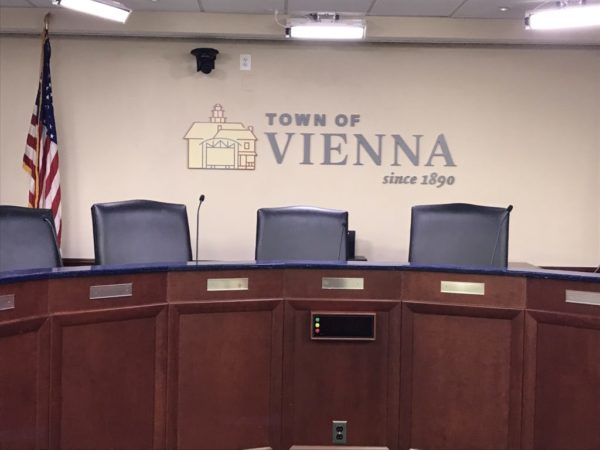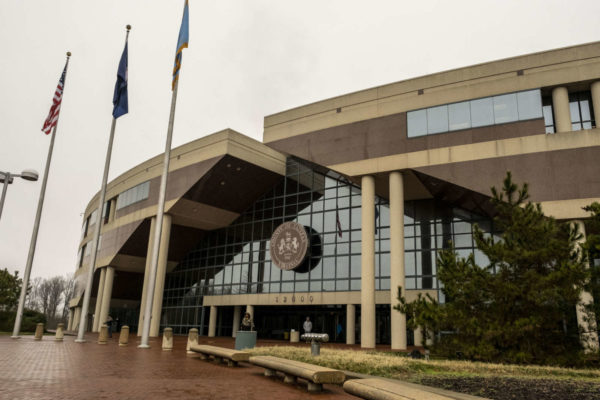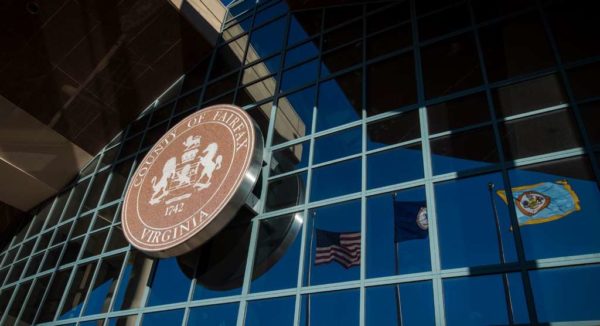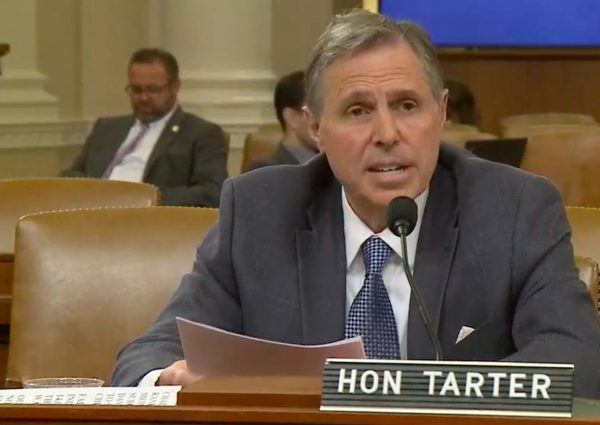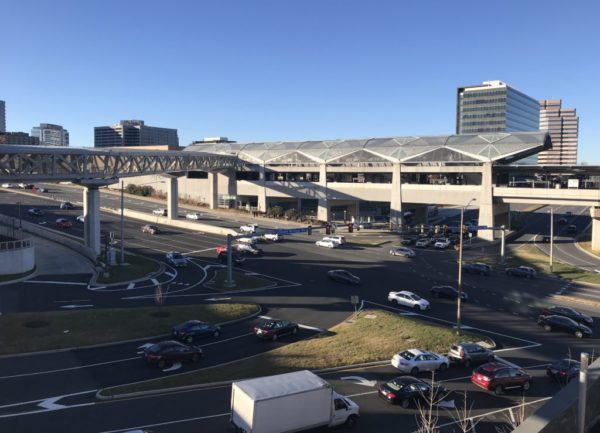The Vienna Town Council has new measures to help businesses and residents struggling financially due to the coronavirus pandemic.
Last night (Monday), the council approved extending the deadline for real estate taxes, along with changing the town’s meal tax provision, according to a town press release.
“Even though the Town has its own significant, pandemic-related financial impacts to address, Town Council wants to make what temporary changes it can to assist our restaurants and property owners,” Mayor Laurie DiRocco said in the press release.
Now, the first 2020 installment of real estate taxes in the town will be due on Aug. 28. Fairfax County’s Board of Supervisors also extended its real estate tax deadline to August.
As for the meal tax, the town adopted an emergency ordinance that will be in effect from April 14 to June 13, the press release said.
“For the next 60 days, through June 13, the Town will waive any penalty and interest fees for late payments. In addition, the Town will increase the on-time payment discount from 3% to 10%,” the press release said, adding that restaurants pay collect meal tax payments from diners to the town.
The Fairfax County Board of Supervisors approved today (Tuesday) giving taxpayers more time to file and pay their taxes.
Now, individuals and businesses in the county will have until June 1 to file their personal property tax returns. Additionally, the first half of payments for real estate taxes won’t be due until Aug. 8.
“Both these resolutions are intended to alleviate the negative impact threatened by the potential spread of COVID-19,” according to county documents.
“I’ve been asked a lot about this since a lot of folks in the county have found themselves without paychecks,” Chairman Jeff McKay said.
McKay said that people won’t accrue late fees for following the new deadlines.
By pushing the deadlines, the county will likely be delayed in receiving tax revenue, according to the county. However, county staff said that the benefits to the community by pushing the deadlines outweighs potential impacts on revenue.
The Fairfax County Board of Supervisors kicked off its first meeting in 2020 by voting to support equal taxing authority.
Yesterday (Tuesday), Chairman Jeffrey McKay and Braddock District Supervisor James Walkinshaw jointly proposed asking the General Assembly to support equal taxing authority.
Currently, counties have less taxing authority than cities and towns in Virginia.
“The local tax structure in Virginia has become outdated, and limitations on counties’ ability to raise revenues from diverse sources has resulted in an over-reliance on property taxes to fund core local government programs and services,” according to the board matter from McKay and Walkinshaw.
McKay and Walkinshaw argue that counties would be able to invest more in education, transportation, public safety and human services with equal taxing authority.
“Virginia relies more on local taxes and revenues for funding government services than most other states,” the board matter says. “Relying too heavily on one source of revenue leaves counties vulnerable to downturns in the real estate market and population shifts.”
The Virginia Association of Counties (VACo) has been pushing for equal taxing authority for the 2020 General Assembly session. Montogomery County’s board recently voted to support equal taxing authority.
“Having served on the VaCo board for a number of years, this is one of the few issues that we can truthfully say has overwhelming support from virtually every county in the Commonwealth of Virginia,” McKay said before the vote.
Springfield District Supervisor Pat Herrity — the only Republican on the Board of Supervisors — disagreed.
“It does not have overwhelming support in the Springfield District,” Herrity said. “I think what we have is more of a spending problem than a revenue problem.”
The board voted 9-1, with Herrity voting “no,” to support the proposal.
Just days before the deadline, Congress passed legislation benefiting small liquor distilleries by extending a tax break that was set to expire on Dec. 31, 2019.
The tax break legislation was first passed in 2017 and only originally guaranteed a decrease through the end of 2019.
But, instead of indefinite decrease that groups like the American Craft Spirits Association were hoping for, the tax decrease was simply extended for another year — until Dec. 31, 2020.
The Craft Beverage Modernization and Tax Reform Act lowered the Federal Excise Taxes (FET) for owners of distilleries from $13.50 to $2.70 per gallon — allowing business owners to reinvest that money by expanding their ventures and hiring more staff.
More than 2,000 distillers across the country — including Falls Church Distillers — benefit from the tax break, according to a press release from the American Craft Spirits Association.
“Though FET permanence is critical to the long-term success of our industry and the peripheral industries we support, including U.S. agriculture and hospitality, today we celebrate a small but critical victory,” Margie Lehrman, the CEO of ACSA, said in the press release.
According to a survey by Forbes of 100 members of the ACSA, half of the respondents said that they would have made staffing cuts if the taxes had risen. Others said that they would have cut production, increased prices or halted expansion to compensate for the tax rise.
Michael Paluzzi, the owner of Falls Church Distillers, said in a previous interview with Tysons Reporter that the tax break allowed him to hire new employees and expand his prospects for growth past NoVA into surrounding areas.
Paluzzi had been working with ACSA since July to push lawmakers for a permanent tax decrease. He originally told Tysons Reporter that though he was hoping that Congress would permanently lower the tax, he was also aware that this outcome was a possibility.
The renewal of the lower tax rate was packaged with other legislation, allowing it to be fast-tracked before it expired.
“Tomorrow, we will again shift gears to focus on permanent tax relief and long-term parity with our friends in craft beer and wine,” Lehrman said.
Photo via Dylan de Jonge/Unsplash
A tax reduction for small distilleries across the country is about to expire on Dec. 31 — potentially leaving local businesses like the Falls Church Distillers uncertain of the future.
Earlier this year, Michael Paluzzi, the owner of the Falls Church Distillers, attended a conference and petitioned members of Congress to pass a bill that would freeze taxes on hard liquor at $2.70 per gallon rather than allowing them to rise to $13.50 per gallon.
The bill garnered 16o Republican cosponsors and 166 Democratic cosponsors, but ultimately did not inspire a legislative change.
Paluzzi said he is disappointed that his efforts with the American Craft Spirits Association didn’t get more support from Virginia politicians.
“We just don’t seem to muster their support for whatever reason,” he said. “The logic escapes me.”
As the looming tax increase approaches in three weeks, Paluzzi said he is preparing to downgrade his dreams of expansion and will focus on fostering his current market in the Virginia, D.C. and Maryland areas, instead of expanding to new states.
For now, many small distillery owners are just trying to stay afloat, Paluzzi said, adding that they will not be able to hire new employees or expand their markets like many planned.
Though he keeps up with newsletters and peers, Paluzzi said he isn’t in contact with people on Capitol Hill.
“Not hearing anything is always a scary thing,” he said.
Photo via Falls Church Distillers/Facebook
The Fairfax County Board of Supervisors is set to hold a public hearing about a real estate tax exemption involving disability income tomorrow (Tuesday).
Fairfax County currently provides income-based real estate tax relief to homeowners based on income and disability.
A revision to the Virginia Code in July now allows localities to exclude the disability income of disabled relatives living in a taxpayer’s home from the total combined income calculation.
The proposal before the Board of Supervisors would codify that exemption for taxpayers in Fairfax County.
County staff has said the tax change could “potentially [expand] the number of properties that qualify for tax relief.”
More from Fairfax County:
The total amount of relief resulting from this amendment is difficult to estimate because the Department of Tax Administration cannot precisely determine how many individuals will apply and qualify under the revised calculation. It is anticipated that the fiscal impact will be minor.
The public hearings start at 3 p.m. and the tax one is set to start around 4 p.m.
If approved, the change would go into effect on Jan. 1.
Photo via Fairfax County/Facebook
Car Tax Due Today — Fairfax County “mailed more than 800,000 annual bills to vehicle owners, and because Oct. 5 falls on a Saturday, this year’s deadline to pay [the] bill is Monday, Oct. 7.” [Fairfax County]
Expect Metro Delays Today — The Orange, Silver and Blue lines will be impacted today due to an overnight rear-end train collision outside Farragut West. [WMATA]
CaliBurger Coming to The Boro — “Locally, the West Coast-styled company’s fries and burgers are served out of a teal-toned NoMa food truck at Wunder Garten. Under a newly inked deal, Caliburger will open next spring in the splashy Boro Development coming together in the heart of Tysons.” [Eater DC]
Art Around Tysons Metro Stations — “Public art not only adds beauty to a place, it can also help people orient themselves and find their way around. Tysons is no exception… Let’s take a look at four public art pieces at Metro stations in Tysons.” [Greater Greater Washington]
Mystery Set at Tysons Mall — “Like [Ellen] Butler’s first two Karina Cardinal mysteries, the setting of the book is local, starting with a mystery criminal absconding with diamonds from a Tysons Corner jewelry store.” [Patch]
The Grass is Greener — “New artificial turf has been installed at Larry Graves Park, replacing the natural grass field where bad weather contributed to game delays and cancellations. City officials hope the revamped surface will be more durable to the climate as well as to its users, but the installation wasn’t well received by all.” [Falls Church News-Press]
County Chair on Explosive Growth — “Sharon Bulova first won political office in Fairfax County 31 years ago on a slow-growth platform. She’ll leave the stage in January having presided over perhaps the most explosive period of growth in the county’s history. It’s a contradiction that Bulova fully acknowledges, and embraces.” [Washington Business Journal]
The City of Falls Church mayor is fighting a federal tax law change that he warns will put a strain on local residents.
In December 2017, Congress passed a new law that limits the amount of state and local taxes (SALT) that people can deduct from their federal income tax return to $10,000.
Known as the SALT deduction cap, this law has stirred up controversy.
Some people claim it puts people in areas with a higher cost of living at a disadvantage because they will likely pay more in taxes, while others say that SALT deductions disproportionately benefit a small proportion of wealthy taxpayers.
In June, Mayor David Tarter spoke in front of the House Ways and Means Subcommittee by invitation of Rep. Don Beyer (D-Va.) regarding the recent cap on the SALT deduction policy.
Tarter said he is one of a few politicians across the country that are spearheading an effort to reverse the decision or minimize the damage they say it will have on their communities in the near future.
“The new cap on the SALT deduction double taxes citizens on these payments and penalizes workers in high-cost areas, like my city, where wages and income are high but are fully matched by the cost of living,” Tarter told the committee, adding that the new law takes away more tax dollars from the city.
Falls Church City Manager Wyatt Shields, who manages the city’s finances, told Tysons Reporter that Falls Church residents spend more on housing comparative to anyone else in the country. He added that this new legislation only “exacerbates” the city’s lack of affordable housing.
According to Tarter’s statement to the committee, the median home price in the city is around $825,000 — “That doesn’t buy you a mansion but likely a modest brick rambler built in the 1950s.”
That median home price is drastically more than the $229,000 median home price across the U.S., according to Zillow.
Despite the fact that Fairfax County is among the richest counties in the nation, it still has problematic financial burdens that lawmakers are attempting to solve.
“I’ve heard from a fair amount of people how their taxes have gone up and not at first realized implications,” Tarter told Tysons Reporter while talking about the fallout from the law.
The Internal Revenue Service (IRS) announced Wednesday, Aug. 14, that they will waive the tax underpayment penalty for more than 400,00 people who did not claim a special penalty waiver when they filed their federal income tax returns this year.
“Earlier this year, the IRS lowered the usual 90% penalty threshold to 80% to help taxpayers whose withholding and estimated tax payments fell short of their total 2018 tax liability,” according to an IRS press release.
Locally, this may help residents in the Northern Virginia area who were hit with unforeseen financial burdens recently because of the SALT deduction cap.
“There are no yachts in Falls Church, just lots of hard-working families trying to get by in the high-rent district,” Tarter said. “Most of the folks that I know are two-income families who serve their country through work in government or the military and want the best education possible for their children.”
Ultimately, Tarter hopes that the SALT deduction cap, currently sitting at $10,000 per household, is heightened or eliminated entirely.
“The next steps are up to Congress,” Tarter said. “I suspect, given the way things are right now, there probably won’t be any immediate action.”
Image via C-Span
Distilleries across the county are fighting a looming tax raise they say threatens their existence — and one Falls Church distillery is joining the fray.
Michael Paluzzi owns Falls Church Distillers and is currently petitioning Congressmembers to pass a bill that would freeze current tax rates in place before they expire at the end of the year.
If the tax rates expire, distilleries across the nation could see a spike in liquor production costs, possibly causing some local distilleries to nix plans for expansion or even close.
In an attempt to prevent that, Paluzzi gathered with more than 160 other distillery owners for a conference in D.C. last month to discuss dilemmas in the industry, set up congressional visits with senators and find a way to stop the federal tax increase.
Legislation and Numbers
The conference was held in conjunction with the American Craft Spirits Association, a non-profit organization consisting of distillery owners and stakeholders, along with the Distilled Spirits Council.
The association is one of the interest groups spearheading legislation to keep the current Federal Excise Tax.
Currently, the Federal Excise Tax rate for liquor is $2.70 per gallon. But, it will rise to $13.50 on Dec. 31 if no one acts.
It may be too late to get the law passed as an individual piece of legislation before the deadline, the association’s CEO Margie Lehrman told Tysons Reporter.
To work around this problem, the group hopes to instead piggy-back it onto other legislation set to be voted on, as a rider bill. She said because of support from over 272 cosponsors, the group is fairly confident this idea will work.
Impact on Local Business
“It is not a Republican bill. It’s not a Democrat bill. The entire alcohol industry is united,” Lehrman said.
Lehrman said she is fairly optimistic about the legislation passing as a “tax vehicle,” since the legislation has traction from over 70 senators around the country. However, Paluzzi worries that legislators will misunderstand the impact of the taxes on small companies.
Paluzzi said that legislators don’t want to be seen giving tax breaks to large distillery companies like Jack Daniels. “This [tax break] means nothing to them and everything to us,” Paluzzi said.
With the tax breaks from the federal government, Paluzzi was able to reinvest in his own business by hiring two new team members. “Any tax relief I was given was more than made up for in the local economy.”
As of 2010, there were fewer than 50 craft spirit producers in the U.S., Lehrman said. Now in 2019, there are over 2,000 — many of them still young companies.
Paluzzi said that it takes three to five years for distilleries to start making even a small profit because of high startup costs.
“This tax relief, for many, was a type of lifeline,” Lehrman said.
Cultural Importance
Both Lehrman and Paluzzi spoke to the cultural and historical value of distilleries.
Since the founding of Falls Church Distillers (442 S. Washington Street) in 2017, Paluzzi and his son, Lorenzo, make various types of craft vodka, whiskey, gin, rum and brandy.
Rooted in their love for liquor, they are also proud of the history behind the distillery. Not only is it the only privately owned distillery in Fairfax County, but it was also the first to open in the area since prohibition ended in 1933.
Lehrman told Tysons Reporter that craft distilleries are becoming increasingly popular among millennials.
“If we wanna think about a product that’s made in America, there is nothing more demonstrative of innovation,” Lehrman said.
Next Steps
Currently, the bill is in the House Committee on Ways and Means.
Though no-one can say for certainty what the outcome will be, Paluzzi said he and other distillers will continue to network with other distillers and politicians while spreading awareness for this issue.
Paluzzi said that liquor has a “historical disadvantage” when it comes to the federal tax rate, and he wants to see “permanence and parity” with that of wine and beer.
“Virginia is the birthplace of distilleries,” Paluzzi said.
Image courtesy Michael E. Paluzzi
Big Names Among Potential Galleria Tenants — “Tysons Galleria… is in advanced talks with Tiffany & Co., Apple Inc. and gourmet grocer Balducci’s, in addition to high-end movie theater chain iPic, to open in portions of the space, according to two sources with knowledge of the discussions.” [Washington Business Journal]
Possible Money Motivation in McLean Double Murder — “The newly unsealed search warrant reveals why Megan Hargan might have carried out the crime: Megan’s mother discovered someone had attempted to wire ‘large amounts’ of money from her bank account on the day before her slaying. Pamela Hargan notified her bank the transfer was fraudulent. On the day of the killings, a second transfer was initiated to send money to a title company that was handling the purchase of a home by Megan in West Virginia.” [Washington Post]
Huge Tysons Development Still Looking for Office Anchor — “The developer behind Scotts Run had courted Amazon and Apple in hopes of landing an anchor for its planned 8M SF Tysons development, but neither of those panned out. Cityline Partners now continues to search for a tenant to kick off construction on the project’s office component. Cityline is one of several developers with major Tysons office projects waiting in the wings, hoping to sign pre-leases before breaking ground.” [Bisnow]
FCPS Offering Sub Gigs for Furloughed Feds — “Fairfax County Public Schools, the largest school district in Virginia, is offering substitute teaching positions to federal employees furloughed during the government shutdown. The hiring event will take place Friday, Jan. 11, from 2 p.m.-4:30 p.m. at the FCPS Administration Center, 8115 Gatehouse Road, Falls Church.” [Patch]
Senators Press Administration on Tax Refunds — “Virginia Senators Mark R. Warner and Tim Kaine (both D-Va.) have sent a letter to Treasury Secretary Steven Mnuchin asking how Virginia taxpayers will be affected by the government shutdown, which has left the Internal Revenue Service (IRS) short-staffed and potentially unprepared for the beginning of the 2019 tax-filing season.” [Fairfax Times]
McLean Foundation Sets Grant Deadline — “The McLean Community Foundation has set a deadline of Feb. 1 for non-profit organizations seeking to apply for its next round of grant funding. The foundation recently awarded nearly $67,000 in grants, including funding to McLean Little League and the Old Firehouse Teen Center, among others.” [InsideNova]


